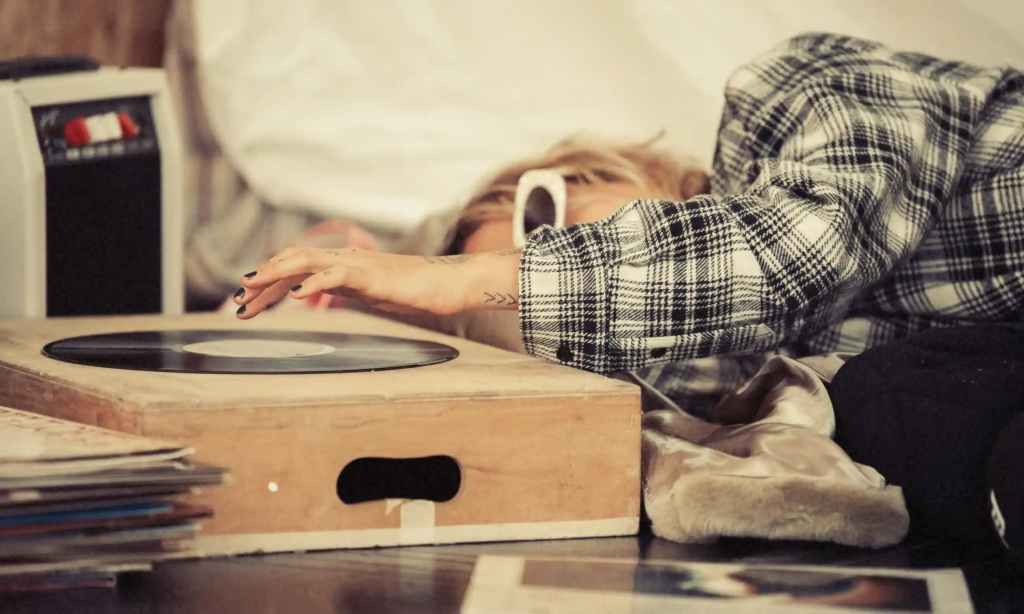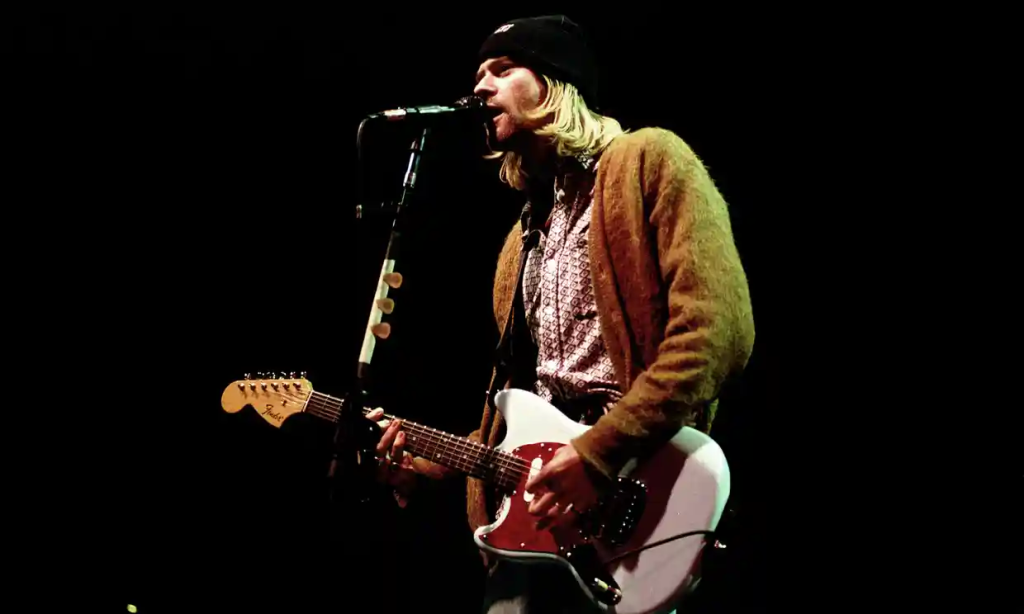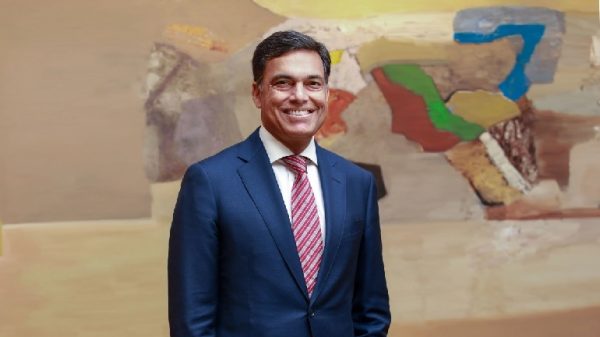It is very short, has no plot and the dialogue is not clear. Cereal bowls are a major theme and a fast-talking cattle biologist plays his manager. We meet the people behind this new Royal Opera House show.

The stage is dimly lit. A figure emerges from the darkness, murmuring incomprehensibly. The figure appears vaguely to be from a distance. Kurt Cobain They are dressed in ragged clothes and have dark-colored hair. The man walks up to the stage, dragging behind him a leaf rake, and begins singing loudly. This development is not well received by the man who looks like Cobain and hides in a cupboard.
This rehearsal is for Last Days, the Royal Opera House performance based upon Gus Van Sant’s 2005 film about a troubled rock star named Blake. It was quite clearly a grim fantasy based in the “missing” 5 days between Cobain’s absconding in Los Angeles from a rehabilitation facility and his suicide in a Seattle outbuilding. Courtney Love had to hire a private investigator to track him down.
“We asked Gus Van Sant for a copy his film’s script. He returned a one-page document containing four red words.
Last Days is a great choice if you are looking for a film that can be adapted as a theatrical production. The plot is not linear (“having a literal “I know what happened in Kurt Cobain’s last days”, we’re no going to do that”) and the dialogue is improvised and quite desultory. To ask Gus Van Sant permission to adapt the opera, the composer Oliver Leith, and the librettist, artist director, and co-director Matt Copson, they also requested a copy the script. Copson says that he sent Copson a Word document with one page. It’s four words in red: sofa, insurance document and something else. It was beautiful, as he said, “Do your own thing.”
The opera’s team clearly took this advice to heart. No one will claim Last Days as an attempt to win the lowest common-denominator mass appeal. This is because Blake is played here by Agathe Rousselle – a woman actor who was best known for her role as the lead in Julia Ducournau’s horror film Titane. The film’s dialogue is almost non-existent. Blake speaks only in mumbles, and Blake doesn’t sing or speak. Copson points out that Blake communicates in this way throughout the film.
Copson called it “literal magic realist” and liberties were taken with the plot. The role of Blake’s manager, played in Gus Van Sant’s film by Kim Gordon (the former bassist in Sonic Youth) is played by a Montana cattle auctioneer. He chants in the famous hyperspeed monotone. Leith, who recorded the opera, says that Blake was 17 years old when he did not know Kurt Cobain. This was quite funny. “He was like, “This isn’t an evil opera thing. Is it?” I was like, “Well, we don’t know yet.”

Copson, who is best known as a visual artist and Leith, an electronic and classical composer whose works have been released by Matthew Herbert’s Accidental label, have never worked on an opera before. They began Last Days during the pandemic. Although they dismiss the notion that lockdown might have helped to convey the film’s theme about isolation, Copson points out that Blake is actively seeking solitude in the film but is constantly interrupted by everyone, from his door-to-door salesmen, to his record company.
Oliver claims that Van Sant’s film attracted him partly due to its sound design. Even the most innocuous sounds – like the creak of a chair or the rustling leaves – are heard at the same volume as Van Sant’s voices. This echoes his interest in “raising everyday stakes and framing boring stuff like, I don’t know, sublime”. He wrote 2018’s piece “Good Day Bad Day Bad Day Bad day” about daily routines. Honey Siren won him a 2020 Ivor Novello Award. It was inspired by the urban sound of sirens rushing past.
He says, “Rather than raising it as the film does,” he adds. “The birds sing songs. The wolves howl, but they are singing in tune. Cereal bowls are a popular theme. It’s unnaturally loud, and it sounds musical, when someone pours cereal. It’s like a zoom in a movie. It’s like a zoom on a film.
Copson saw the film as a combination of “banality” and “magic”, and Cobain’s continued relevance, 28 years after his death. It’s the relevance and persistence of the archetype, which I think makes it fascinating and most importantly, interesting in 2022, which is quite different from when it was made, that seem to speak to the current condition we find ourselves in. Talk to any young person and you will find that everyone is displayed to a greater degree than they were before. Privacy questions also arise. It boils down to “Am I an individual or am a member of society?” Can I express myself freely or must I limit my expression? What does it mean to be free? What does freedom even mean?

“I believe the reason this archetype, Kurt, is still relevant is that he so strongly demonstrated this paradox. He was so full of contradictions. His suicide note said, “I love people too much” and then, “I hate people.”
Even with its obvious strangeness, its lack of plot and mumbled dialogue, the three actors are eager for Last Days to be seen by a wider audience in a world that regards opera as an intimidating art form. Oliver says that productions can be alienating. Oliver says that new operas tend to be about issues and that is the most alienating. It’s too simple.
Morrissey, of Last Days, says that “I believe it should resonate.” You should feel something. You should feel truly moved. “Consensus and agreement are not something we want in masse. I believe that individual understanding and resonance with ourselves is what we desire.”
Copson says, “I believe we’re united in one cause.” Copson says, “We are all like, We just want people feel and then they will gradually find it accessible in a form.’ But that doesn’t mean we should dumb it down.



















